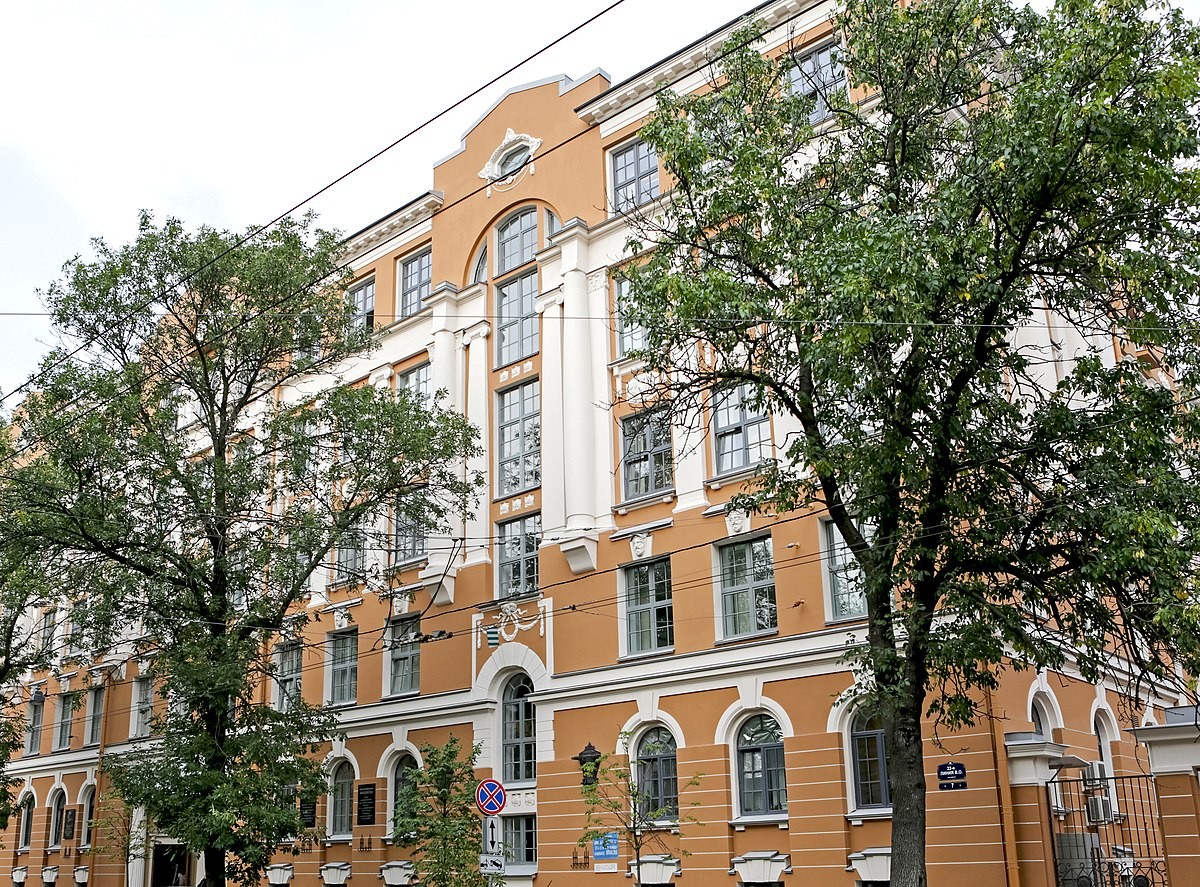On June 15, Alexey Ivanov, Director of the International BRICS Competition Law and Policy Centre, took part in the conference"Balance of Public and Private Interests in Antitrust Disputes: Problems and Prospects" held at the St. Petersburg State University. Alexey Ivanov spoke on a panel "Topical Issues of Legal Regulation of Cases concerning Competition Law Violations".
The session began with a presentation by Maxim Shaskolsky, Head of FAS Russia. He noted that one of the important issues of balancing private and public interests in antitrust regulation was the question of exclusive rights to intellectual property (IP). Rights holders should not misuse them to the detriment of other market players or limit competition. A striking example of ensuring a balance in this area was the introduction in Russia of mechanisms of compulsory licensing and parallel imports.
Protecting the interests of consumers and bona fide participants in digital markets from abuse by digital monopolies remains a priority for the FAS. Patent holders often try to use antitrust immunities in the field of IP to abuse exclusive rights and use them as a way to control the market. In cases against Apple, Google, Microsoft, and Booking, virtually every company has argued that FAS intervention in connection with the operation of antitrust immunities for IP is inadmissible.
"As a result of the evaluation of our decisions, the courts confirmed that the subject of the antitrust cases was not the disposal of their own programs and applications, but the behavior in the commodity market in relation to other market participants, which went beyond the rights to IP,"
stressed the Head of the FAS.
Alexey Ivanov reminded that antitrust regulation is an important instrument for stabilizing the economy in conditions of uncertainty. Antitrust appeared at the turn of the 19th-20th centuries, when the classical methods of legal regulation were unable to rein in the new form of business organization — trusts, just as today's traditional regulation cannot cope with digital platforms.
Trusts were constantly reorganizing businesses and adapting to the regulatory environment. The Standard Oil trust eluded regulators for more than 40 years until it was split up by antitrust litigation.
Antitrust as a private law method is based on the principle of avoiding harm by similar, seemingly legitimate, actions. In other words, antitrust prohibits the abuse of the right to economic activity. The same logic follows Article 34 of the Russian Constitution, which provides for the right to economic activity, but at the same time does not allow this activity to be aimed at monopolization and unfair competition.
The erroneous concept of antitrust as a type of control and supervisory activity contradicts its original nature and results in the fact that in a difficult economic situation businesses are exempted from antitrust inspections. In this way the FAS is deprived of the opportunity to demonstrate its anti-crisis function.
Antitrust played an important role in the reconstruction of postwar Europe and South Africa after the fall of the apartheid regime. Today, as Russia's economy undergoes structural transformation and foreign companies leave the country, the risk of monopolization increases, and antitrust is especially necessary, Ivanov said.
"Monopoly structures are getting stronger, concentration of market power is growing, the role of the consumer is decreasing, and antitrust regulators have to look on from the outside, waiting for an opportunity to apply controlling tools."
Alexey Ivanov reminded that application of antitrust instruments also corresponds to the spirit of Article 75.1 of the Constitution about creating conditions for sustainable economic development (sustainability) of the country.
"Antitrust is the science of sustainability. It is the antitrust agency that is responsible for the sustainability of economic development and can participate in the anti-crisis management of the structural transformations that are now taking place. Give us the opportunity to prevent systemic distortions and provide analysis of the complex system of the Russian economy, so that it could follow the path of sustainable development.”
During the discussion with the participants of the meeting the Director of the BRICS Centre also emphasized the necessity of developing in Russia the institution of class action suits already used in the U.S. Lawyers, entrepreneurial associations and consumer societies bring these claims in the event of mass violations. If they lose, the monopolist will pay a fine triple the amount of the victims' losses. This will, among other things, allow the FAS to give more discretion on key transactions and exempt minor ones. Antitrust should not be only an administrative tool, FAS should get out of the Procrustean bed of Order №220, convinced Ivanov.
"The regulator must form its own vision of the architecture of market relations. If the antimonopoly authority cannot give its subjective assessment, its social usefulness is considerably devalued."
Antimonopoly immunities for IP should be abolished and quantitative analysis and calculation of market shares in the digital sector should be abandoned, Ivanov believes. There are many cases where a digital company with a small share has enormous market power. And vice versa, a large market share is not always a sign of market power.
Denis Kolos, Judge, Court of the Eurasian Economic Union, pointed out the importance of uniform understanding and application of the EEU law. He presented several advisory opinions of the EEU Court and noted that they allow to resolve disputes between the member states of the Union and the Commission, as well as to eliminate problematic issues on which the member states have diverging positions or lack a unified approach.
"Advisory opinions of the Court work as a soft law mechanism, do not create additional conflicts and, perhaps, due to their non-binding, but recommendatory nature, are implemented by the member states much easier".
Anatoly Golomolzin, former Deputy Head of the Federal Antimonopoly Service of Russia, Lecturer at the Institute of Competition Development and Antitrust Regulation of St. Petersburg State University, delivered a comprehensive report on the development of antimonopoly policy in the context of transformation of the Russian economy caused by both the digitalization process and pandemic and sanctions factors. In the new era, the consequences of the anticompetitive actions of digital giants are almost instantaneous and global - antimonopoly regulation must be adapted to these realities. For this purpose, the Fifth Antimonopoly Package was developed, but even it does not provide for all the necessary changes in the legislation. For example, initially it was planned to recognize the dominant position of the digital platform, if the network effects or the possession of big data allows it to have a decisive impact on the conditions of goods circulation. However, in the final version of the Fifth Package, the concept of dominant position remained unchanged.
"It is necessary to prevent the creation of conditions for monopolization of the infrastructure of the digital economy - both physical ICT infrastructure and in the formation of electronic data infrastructure, without allowing single service providers at the very beginning,"
stressed the speaker.
Andrey Tsyganov, Deputy Head of FAS Russia, spoke about the trend in the Russian antimonopoly policy to soften and simplify the rules. In comparison with the European Digital Markets Act (DMA), the methods of FAS suggest more self-regulation by business. The agency is leaning toward a policy of guidelines, recommendations and mediation, rather than strict rules and sanctions.
"We encourage refraining from unlawful behavior, developing soft law methods, sectoral trade policies, which are very important for the pro-competitive development of entire sectors of the economy. Including a compliance provision in the competition law also helps gently set the right direction for business development."
Last week, during a meeting of the Interstate Council on Antimonopoly Policy (ICAP), the Model Principles and Standards for Digital Market Participants in the CIS Member States were unanimously approved. The document contains a framework for the formation of open and non-discriminatory conditions for doing business. It clearly outlines the risks and possible unfair practices of digital market participants, and also defines digital platforms and the composition of their activities.
The session was also addressed by Denis Gavrilov, Deputy Head of the Department of Competition Law at the O.E. Kutafin Moscow State Law University (MGYuA); Irina Savitskaya, Chairman of the Arbitration Court of the North-West District of Moscow; Anna Alexeeva, Head of the Department of Commercial Law and Procedure at the S. Alexeev Private Law Research Center under the Russian President; Maria Kobanenko, member of the General Council of the Association of Antimonopoly experts, and others.
The conference "The Balance of Public and Private Interests in Antitrust Disputes: Problems and Prospects" is taking place on June 15-16 at St. Petersburg University. The conference is attended by representatives of the judiciary, antitrust agencies, economic actors and academia.
The experts will discuss constitutional principles of competition law and foundations of competition protection, problems of defining the limits of antimonopoly control as well as civil law disputes resolution and civil rights protection in administrative order by antimonopoly authorities.




